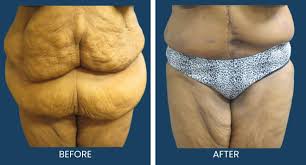
Transforming Bodies: The Impact of Skin Surgery After Weight Loss
The Importance of Skin Surgery After Weight Loss
Weight loss is a significant achievement that can improve both physical health and self-confidence. However, one common issue that many individuals face after losing a substantial amount of weight is excess skin. This excess skin can not only be uncomfortable but also affect the overall appearance of the body.
Skin surgery, also known as body contouring or skin removal surgery, is a procedure designed to address the excess skin that remains after weight loss. This type of surgery can help individuals achieve a more toned and proportionate body shape, enhancing the results of their weight loss journey.
Benefits of Skin Surgery After Weight Loss:
- Improved Body Contour: Skin surgery can help remove excess skin and reshape the body, resulting in a more defined and contoured appearance.
- Enhanced Comfort: Excess skin can lead to chafing, rashes, and discomfort. Skin surgery can alleviate these issues and improve overall comfort.
- Boosted Confidence: By addressing loose skin and achieving a more sculpted physique, individuals often experience a significant boost in self-esteem and confidence.
- Better Mobility: Excess skin can restrict movement and hinder physical activities. Skin surgery can improve mobility and enhance quality of life.
If you have undergone significant weight loss and are struggling with excess skin, consulting with a qualified plastic surgeon specializing in body contouring procedures is recommended. The surgeon will assess your individual needs and goals to create a customized treatment plan tailored to your unique situation.
It’s essential to remember that skin surgery is a major procedure that requires careful consideration and preparation. Understanding the potential risks, recovery process, and expected outcomes is crucial before undergoing any surgical intervention.
Ultimately, skin surgery after weight loss can be a transformative step towards achieving the desired body shape and enjoying the full benefits of your weight loss success.
Understanding Skin Surgery After Weight Loss: Answers to 8 Common Questions
- 1. What is skin surgery after weight loss?
- 2. Who is a good candidate for skin surgery after weight loss?
- 3. What areas of the body can be addressed with skin surgery after weight loss?
- 4. How long does it take to recover from skin surgery after weight loss?
- 5. What are the potential risks and complications associated with skin surgery after weight loss?
- 6. Will insurance cover the cost of skin surgery after weight loss?
- 7. How much does skin surgery after weight loss typically cost?
- 8. Are there non-surgical alternatives to address excess skin after weight loss?
1. What is skin surgery after weight loss?
Skin surgery after weight loss, also known as body contouring or skin removal surgery, is a cosmetic procedure designed to address excess skin that remains after significant weight loss. This type of surgery focuses on removing loose or sagging skin to achieve a more toned and sculpted appearance. Skin surgery aims to enhance the body contour, improve comfort, boost self-confidence, and enhance mobility for individuals who have undergone substantial weight loss. Consulting with a qualified plastic surgeon specializing in body contouring procedures is essential to understand the process and determine if skin surgery is the right option based on individual needs and goals.
2. Who is a good candidate for skin surgery after weight loss?
Determining who is a suitable candidate for skin surgery after weight loss involves several factors. Generally, individuals who have achieved significant weight loss and are left with excess skin that affects their quality of life and self-confidence may be good candidates for skin surgery. Ideal candidates are in good overall health, have maintained a stable weight for a period of time, and have realistic expectations about the outcomes of the procedure. Consulting with a qualified plastic surgeon specializing in body contouring can help assess individual candidacy based on specific health considerations and aesthetic goals.
3. What areas of the body can be addressed with skin surgery after weight loss?
Skin surgery after weight loss can address various areas of the body where excess skin commonly accumulates. Common areas that can be addressed with skin surgery include the abdomen, arms, thighs, buttocks, and breasts. These procedures are designed to remove loose skin, tighten underlying tissues, and sculpt a more contoured and proportionate appearance. By targeting specific areas of concern, individuals can achieve a more harmonious body contour following significant weight loss. Consulting with a qualified plastic surgeon specializing in body contouring procedures can provide personalized recommendations on the most suitable treatment options based on individual needs and goals.
4. How long does it take to recover from skin surgery after weight loss?
Recovery time from skin surgery after weight loss can vary depending on the specific procedures performed and individual factors such as overall health and extent of surgery. In general, patients can expect a recovery period ranging from several weeks to a few months. During this time, it is crucial to follow post-operative care instructions provided by the surgeon, including proper wound care, activity restrictions, and follow-up appointments. While initial healing may occur within a few weeks, full recovery and optimal results may take several months as swelling subsides and the body adjusts to its new contours. Patience and adherence to the recommended recovery guidelines are essential for a successful outcome following skin surgery after weight loss.
5. What are the potential risks and complications associated with skin surgery after weight loss?
When considering skin surgery after weight loss, it is essential to be aware of the potential risks and complications that may arise. Some common risks associated with skin surgery include infection, bleeding, poor wound healing, scarring, and anesthesia-related issues. Additionally, there is a possibility of asymmetry or irregular contours in the treated areas. It is crucial to discuss these risks with your plastic surgeon before undergoing the procedure and follow all post-operative care instructions diligently to minimize complications and achieve optimal results.
6. Will insurance cover the cost of skin surgery after weight loss?
The question of whether insurance will cover the cost of skin surgery after weight loss is a common concern for individuals considering this procedure. In most cases, insurance companies consider skin surgery to be a cosmetic or elective procedure rather than a medically necessary one. As a result, insurance coverage for skin surgery after weight loss is often limited and may not be included in standard health insurance plans. However, some exceptions may apply if the excess skin causes functional issues or medical complications. It is advisable to consult with your insurance provider and healthcare provider to understand your coverage options and determine the potential financial implications of undergoing skin surgery after weight loss.
7. How much does skin surgery after weight loss typically cost?
The cost of skin surgery after weight loss can vary depending on various factors such as the type of procedure, the extent of skin removal needed, the surgeon’s expertise, and the geographical location of the practice. Generally, skin surgery procedures are considered elective and may not be covered by health insurance, making out-of-pocket expenses a significant consideration. It is advisable to consult with a board-certified plastic surgeon for a personalized assessment and cost estimate based on your specific needs and goals. Understanding the financial aspects of skin surgery after weight loss is essential for making informed decisions about pursuing this transformative procedure.
8. Are there non-surgical alternatives to address excess skin after weight loss?
For individuals seeking alternatives to surgical interventions for excess skin after weight loss, there are non-surgical options available that may help improve skin elasticity and firmness. Non-invasive treatments such as laser therapy, radiofrequency skin tightening, ultrasound treatments, and body contouring procedures can be considered as alternatives to traditional skin surgery. While these non-surgical approaches may not provide the same dramatic results as surgery, they can still offer noticeable improvements in skin tone and texture. It is essential to consult with a qualified dermatologist or aesthetic specialist to determine the most suitable non-surgical option based on individual needs and expectations.


